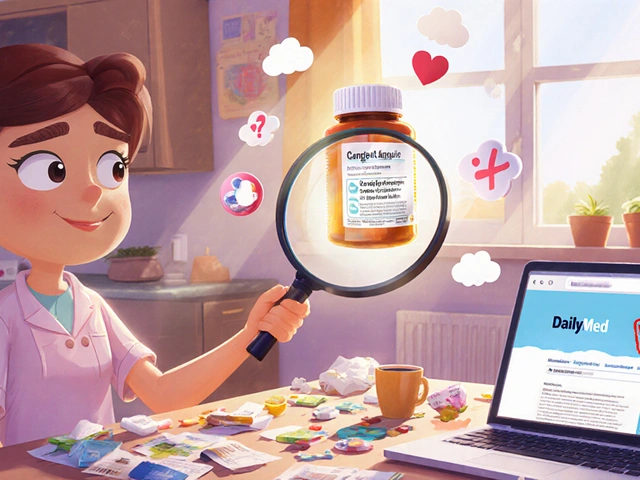Children: Practical Health, Safety & Medication Tips for Parents
Raising children means handling scrapes, fevers, messy tummies, and questions you didn’t expect. This page collects clear, usable tips on common childhood health problems, safe medicine use, and when to get professional help. No jargon—just things you can try or watch for right now.
Everyday safety and medicine basics
Keep medicines out of reach and in their original containers. Use a proper measuring spoon or syringe for liquid meds—kitchen teaspoons vary too much. Follow age and weight dosing on the label or your doctor’s directions; if you’re unsure, call your clinic before giving anything. For over-the-counter pain relievers or fever reducers, choose the child-specific formulation and never give adult pills to a child.
When buying medicine online, pick licensed pharmacies and read reviews. Watch for oddly low prices, required wire transfers, or websites that don’t list a real address—those are red flags. If you need a prescription refill and the site asks for no prescription at all, pause and check with your local pharmacist or doctor.
Common problems parents face
Fevers: A fever alone isn’t an emergency. Use the right dose of acetaminophen or ibuprofen if the child is uncomfortable, not just to lower the number. Hydration and rest matter more than chasing a specific temperature. Call your doctor if the child is under 3 months with any fever, or if a fever lasts more than 48 hours or comes with severe symptoms.
Coughs and colds: Most are viral and get better without antibiotics. Keep air moist, encourage fluids, and monitor breathing. If a cough causes trouble breathing, blue lips, or high fever, get urgent care. For recurring or severe infections, your doctor may test for bacterial causes and recommend the right antibiotic.
Rashes and skin issues: Note what the rash looks like and whether it itches, spreads fast, or is paired with fever. Some rashes need simple home care; others require testing. If a rash appears suddenly with a high fever or blisters, seek medical attention.
Stomach upsets: For mild vomiting or diarrhea, small frequent sips of an oral rehydration solution usually work. Avoid sugary drinks. If the child can’t keep anything down, shows signs of dehydration, or has bloody stools, call your doctor.
Infections and antibiotics: Not every infection needs antibiotics. For conditions like strep throat, ear infections, or certain UTIs, antibiotics help—but the type and dose must match the child’s age and weight. If your child has allergies or a chronic condition, tell the prescriber every time.
When to see a doctor right away: difficulty breathing, changed mental state (very sleepy or hard to wake), persistent high fever despite meds, dehydration, seizures, or signs of severe allergic reaction. Don’t wait if you feel something is seriously off—your instincts matter.
Want more specific reads? Browse the tag articles below for guides on infections, medication safety, and condition-specific advice. If you’re unsure about any treatment, call your pediatrician—fast answers beat risks.

Efavirenz Safety and Efficacy in Children
Efavirenz is commonly used in pediatric HIV treatment, but understanding its safety and efficacy can help parents make informed decisions. This article delves into its benefits, potential side effects, and tips for safe administration in children. With insights backed by recent research, it serves as a practical guide for caregivers ensuring effective treatment for young patients.
Categories
- Medications (70)
- Health and Medicine (61)
- Health and Wellness (36)
- Online Pharmacy Guides (16)
- Nutrition and Supplements (9)
- Parenting and Family (3)
- Environment and Conservation (2)
- healthcare (2)
- prescription savings (1)



